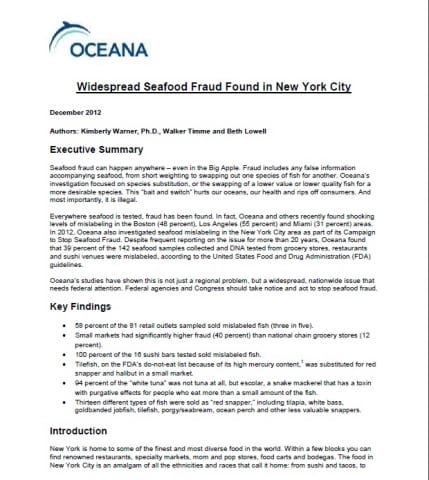Report | December, 2012
Widespread Seafood Fraud Found in New York City
Seafood fraud can happen anywhere – even in the Big Apple. Fraud includes any false information accompanying seafood, from short weighting to swapping out one species of fish for another. Oceana’sinvestigation focused on species substitution, or the swapping of a lower value or lower quality fish for a more desirable species. This “bait and switch” hurts our oceans, our health and rips off consumers. And most importantly, it is illegal.
Everywhere seafood is tested, fraud has been found. In fact, Oceana and others recently found shocking levels of mislabeling in the Boston (48 percent), Los Angeles (55 percent) and Miami (31 percent) areas. In 2012, Oceana also investigated seafood mislabeling in the New York City area as part of its Campaign to Stop Seafood Fraud. Despite frequent reporting on the issue for more than 20 years, Oceana foundthat 39 percent of the 142 seafood samples collected and DNA tested from grocery stores, restaurants and sushi venues were mislabeled, according to the United States Food and Drug Administration (FDA)guidelines.
Oceana’s studies have shown this is not just a regional problem, but a widespread, nationwide issue that needs federal attention. Federal agencies and Congress should take notice and act to stop seafood fraud.




